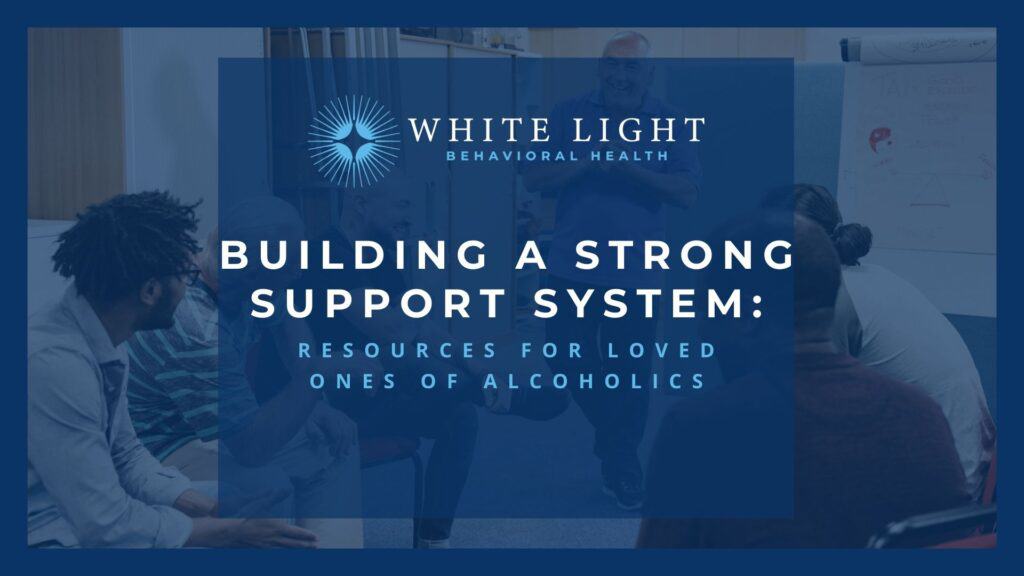Understanding the Impact of Alcoholism on Loved Ones
Alcoholism is a chronic and progressive disease that affects not only the individual struggling with addiction but also their friends and family. It can be difficult to know how to support a loved one who is struggling with alcoholism, but it is important to understand that their recovery is a process that requires patience, love, and understanding. This article provides information and resources for loved ones of alcoholics, including tips for building a strong support system and strategies for coping with the challenges that may arise.
The Negative Effects of Alcoholism on Loved Ones
Alcoholism can have a profound impact on the lives of loved ones, including family members, partners, and close friends. Those closest to the individual struggling with addiction may experience feelings of guilt, shame, and anger, as well as financial and emotional stress. Additionally, alcoholism can lead to strained relationships, communication problems, and feelings of hopelessness.
Loved ones of alcoholics need to understand that their feelings are valid and that they are not alone in their struggles. Seeking support from friends, family, or a support group can help loved ones cope with the negative effects of alcoholism and provide a sense of community and understanding.
Tips for Building a Strong Support System
Seek Support from Other Loved Ones: One of the best ways to build a strong support system for a loved one struggling with alcoholism is to seek support from other loved ones. This may include family members, partners, or close friends who are also affected by the addiction. By sharing experiences and offering support to one another, loved ones can build a strong network of support and help to reduce feelings of isolation and loneliness.
Join a Support Group: Joining a support group, such as Al-Anon or Nar-Anon, can provide a safe and supportive environment for loved ones of alcoholics. These groups offer a space for loved ones to share their experiences, discuss their struggles, and receive support from others who have faced similar challenges.
Connect with a Therapist: Working with a therapist who specializes in addiction and recovery can provide additional support and guidance for loved ones of alcoholics. A therapist can help loved ones manage their emotions, work through their feelings of guilt and shame, and develop healthy coping strategies.
Focus on Self-Care: Loved ones of alcoholics need to take care of themselves and prioritize their own mental and physical health. This may include practicing mindfulness and relaxation techniques, engaging in physical exercise, and seeking support from friends and family.
Strategies for Coping with the Challenges of Alcoholism
- Set Boundaries: One of the most important strategies for coping with the challenges of alcoholism is to set boundaries. This may involve setting limits on the amount of time spent with the individual struggling with addiction, or declining invitations to events where alcohol will be present.
- Learn to Communicate Effectively: Effective communication is key to managing the challenges of alcoholism. This may involve having open and honest conversations with the individual struggling with addiction, expressing your concerns and needs in a non-judgmental way, and setting clear and specific expectations for their behavior.
- Focus on the Positive: It is easy to become fixated on the negative aspects of alcoholism, but it is important to focus on the positive aspects of your relationship with your loved one. This may involve celebrating their accomplishments and focusing on the good times you have shared.
- Take Time for Yourself: Taking time for yourself is essential for managing the challenges of alcoholism. This may involve setting aside time for hobbies, spending time with friends and family, or engaging in self-care activities like exercise, meditation, or journaling. Taking time for yourself allows you to recharge, manage stress, and maintain a positive outlook.
- Seek Professional Help: If you are struggling to cope with the challenges of alcoholism, it may be helpful to seek professional help. This may involve working with a therapist who specializes in addiction and recovery or seeking support from a support group or 12-step program.
Building a Supportive Network for Recovery
Loved ones of alcoholics face a unique set of challenges, but with support, understanding, and a strong network of support, it is possible to navigate these challenges and provide meaningful support to your loved ones as they work toward recovery. Whether through therapy, support groups, or self-care practices, there are many resources available to loved ones of alcoholics to help them manage the emotional, financial, and relational stress that may arise.
At White Light Behavioral Health, we understand the impact of addiction on loved ones and offer a range of resources and support services for those affected by alcoholism. Whether you are seeking individual therapy, support groups, or family counseling, our team of experts is here to help you navigate the challenges of addiction and build a stronger, more supportive network of care.
How can I support a loved one who is struggling with alcoholism?
Supporting a loved one dealing with alcoholism requires patience, empathy, and understanding. It’s important to educate yourself about alcoholism, communicate openly and without judgment, encourage professional help, and take care of your well-being.
What are some signs that indicate a loved one may be struggling with alcoholism?
Recognizing the signs of alcoholism early can help you intervene and support your loved one effectively. Look for changes in behavior, physical health problems, neglect of responsibilities, and withdrawal symptoms when alcohol isn’t available.
How can I encourage my loved one to seek help for their alcohol addiction?
Approaching the topic of seeking help for alcohol addiction can be challenging, but it’s crucial for your loved one’s well-being. Express your concern, offer support without enabling, provide information about treatment options, and consider staging an intervention with the help of a professional.
What are some resources available for families and friends of individuals struggling with alcoholism?
Several resources are available to support families and friends of individuals battling alcoholism. These include support groups like Al-Anon, online forums, family therapy programs, and educational materials provided by organizations like the National Institute on Alcohol Abuse and Alcoholism.
How can I take care of my well-being while supporting a loved one with alcoholism?
Supporting a loved one with alcoholism can take a toll on your own mental and emotional health. It’s essential to set boundaries, practice self-care activities, seek support from others, and consider therapy or counseling to cope with stress and emotions.
How can I help my child who is struggling with addiction?
If your child is struggling with addiction, it’s essential to provide love, support, and encouragement while also setting boundaries and seeking professional help. Consider resources such as addiction treatment centers, therapy, support groups, and educational materials tailored to parents of addicted children.
What should I do if my loved one refuses to acknowledge their alcohol addiction?
It’s not uncommon for individuals struggling with alcohol addiction to deny or minimize their problem. If your loved one refuses to acknowledge their addiction, continue to express your concern, provide information about the consequences of alcoholism, and consider seeking guidance from a professional interventionist.
How can I rebuild trust with a loved one who has struggled with alcoholism?
Rebuilding trust with a loved one who has battled alcoholism requires time, effort, and commitment from both parties. Open communication, consistency, setting realistic expectations, and seeking couples or family therapy can help repair damaged relationships and foster trust.
What role do genetics play in alcoholism?
Genetics can contribute to a person’s susceptibility to alcoholism, as certain genes may increase the risk of developing alcohol dependence. However, genetics alone do not determine whether someone will become an alcoholic, as environmental factors and personal choices also play significant roles.
What is the relationship between alcoholism and mental health?
Alcoholism & mental health often coexist, with individuals struggling with alcohol addiction frequently experiencing mental health issues such as depression, anxiety, or trauma. Integrated treatment approaches address both addiction and mental health disorders simultaneously for better outcomes and long-term recovery.

Share This Post



